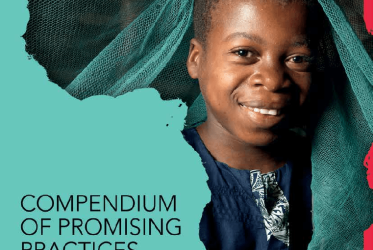The WCC’s 11th Assembly is to take place in 2022, in Karlsruhe, Germany – Bonhoeffer’s homeland – and “it is no surprise that the name of Dietrich Bonhoeffer should be called to mind,” since “the themes of the love of Christ, the world, reconciliation, and unity were central to him,” writes Clements.
“Bonhoeffer was deeply involved in the developing ecumenical movement during his short lifetime, and since his death at the hands of the Nazi regime in 1945 he has proven to be a major inspiration in ecumenical life and thought,” recounts Clements, the former general secretary of the Conference of European Churches and author of the book, Dietrich Bonhoeffer’s Ecumenical Quest (WCC Publications, 2015).
Clements quotes from a sermon preached in 1934 by Bonhoeffer to one of the two German congregations he was then pastor of in London. In it, Bonhoeffer stated that a church that calls a people to belief in Christ “must itself be, in the midst of that people, the burning fire of love, the nucleus of reconciliation, the source of the fire in which all hate is smothered and proud, hateful people are transformed into loving people.”
The Karlsruhe gathering is the first WCC assembly to take place in Germany since the founding of the WCC in Amsterdam 1948, and several articles in the issue discuss the history of the links between the German churches and the worldwide ecumenical movement.
Marie Anne Subklew-Jeutner discusses the peace ethics of the Protestant churches in the former German Democratic Republic, against the background of the statement of the WCC’s 1st Assembly in Amsterdam that “war is contrary to the will of God.”
The moderator of the WCC’s central committee, Agnes Abuom, and Roger Williamson deal in their articles with the response of the German churches to the WCC’s Programme to Combat Racism (PCR) in the early 1970s, at a time when the programme was facing criticism especially in Western Europe and North America.
A second set of articles in the issue deals with contemporary ecumenical dialogue. Peter-Ben Smit and Adrian Suter consider the bilateral dialogue between the Mar Thoma Syrian Church and the Old Catholic churches of the Union of Utrecht, and especially the question of Christology, while Rajmund Porada from Poland explores the issues surrounding a joint declaration by Catholics and Lutherans on the church and ministry. Meanwhile, Jeanine W. Turner and Bishop Brian Farrell, secretary of the Pontifical Council for Promoting Christian Unity, discuss how the recourse to online meetings resulting from the COVID-19 pandemic changes the dynamics of ecumenical dialogue.
In the final article in this issue, Dr Tinyiko Maluleke underlines the need for Black and African theologies to face questions about the complicity of Christianity and theology in the crisis the African continent faces, where Black, feminist, and African theologies have never been needed more.
The Ecumenical Review is published by Wiley on behalf of the WCC.
Read-only access to Keith Clements’s article, “The Burning Fire of Love, the Nucleus of Reconciliation: Dietrich Bonhoeffer and the Theme of the 11th Assembly of the World Council of Churches.”
Table of contents of latest issue






